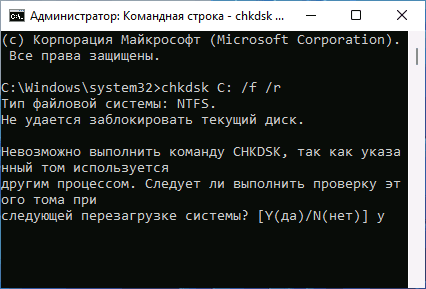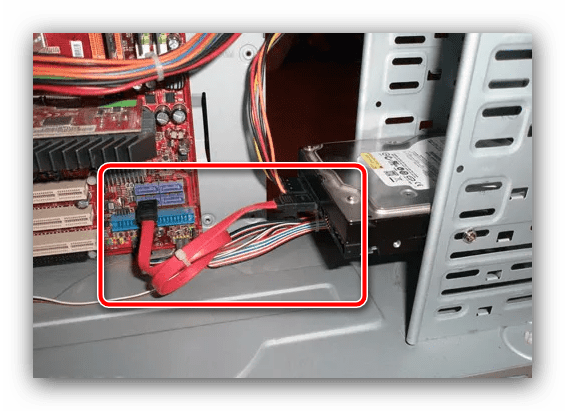Синий экран с ошибкой KERNEL DATA INPAGE ERROR — одна из самых распространённых ошибок такого рода в Windows 11, Windows 10, 8.1 или Windows 7. В большинстве случаев к ошибке приводят те или иные проблемы с оборудованием, в частности — жестким диском, SSD или оперативной памятью, но возможны и иные варианты.
В этой пошаговой инструкции подробно рассмотрены способы исправить ошибку KERNEL_DATA_INPAGE_ERROR, от простых к более сложным.
Первые шаги для исправления ошибки KERNEL_DATA_INPAGE_ERROR

Прежде чем начать, некоторая дополнительная информация, которая может быть полезной. При появлении синего экрана с ошибкой KERNEL DATA INPAGE ERROR вы также можете увидеть код ошибки, в некоторых случаях он может помочь сузить выбор вариантов действий для решения проблемы. Коды и сопутствующие им причины ошибки:
- 0x0000007A — ошибки доступа к файлам. Здесь конкретные причины всё так же остаются не ясны.
- 0x0000009C и 0xC000016A — ошибки жесткого диска или SSD, поврежденные сектора.
- 0xC000009D — проблемы с подключением HDD или SSD, поврежденные кабели подключения, неисправности накопителя.
- 0xC0000185 — ошибки ввода-вывода, предположительно, проблемы с подключением HDD или SSD: плохо подключенные или поврежденные кабели, неисправности разъёмов.
- Также может указываться файл драйвера. Например, наиболее распространенный вариант msfs.sys говорит нам о том, что причина кроется в накопителе (или его подключении). Поиск по другим отображаемым именам файлов .sys может указать на то, с каким именно оборудованием возникла проблема.
Учитывая наиболее распространенные причины ошибки KERNEL DATA INPAGE ERROR, список первых шагов, которые имеет смысл произвести, чтобы их исправить, выглядит следующим образом:
- Перепроверьте подключение накопителей: заново подключите кабели (при возможности, заменив их на новые) со стороны самого диска и со стороны материнской платы, для дисков M.2 — отключите и заново подключите накопитель. При наличии дополнительных разъёмов, попробуйте использовать ранее не использовавшийся разъём.
- Извлеките модули оперативной памяти, протрите контакты, установите модули RAM на место.
- Выполните проверку системного диска жесткого диска: не только файловой системы, но и поврежденных секторов. Запустите командную строку от имени администратора. Для этого можно начать вводить «Командная строка» в поиске на панели задач, нажать правой кнопкой мыши по найденному результату и выбрать пункт «Запуск от имени администратора». Введите команду chkdsk C: /f /r и нажмите Enter. В случае предложения перезагрузить компьютер, введите Y и нажмите Enter, затем перезагрузите компьютер. Если ошибки были найдены и исправлены, это может исправить ошибку. Также может оказаться, что они не подлежат исправлению и в ближайшем будущем придется менять жесткий диск.
- Выполните проверку оперативной памяти на ошибки. Для этого можно использовать встроенную утилиту: нажмите клавиши Win+R на клавиатуре, введите команду mdsched.exe и нажмите Enter. Следуйте указаниям утилиты проверки оперативной памяти. Подробнее по использованию утилиты: Диагностика оперативной памяти в Windows.
- Выполните проверку и восстановление системных файлов. Подробнее: Проверка и восстановление целостности системных файлов Windows 11, Восстановление системных файлов Windows 10.
- Если недавно на компьютере устанавливалось новое оборудование, проверьте, появляется ли ошибка, если отключить его.
- В случае, если ранее вы изменяли параметры файла подкачки, попробуйте включить автоматическое определение параметров файла подкачки в Windows.
- Проверьте, появляется ли ошибка, если отключить все накопители, кроме системного при условии наличия более чем одного диска на компьютере.
Обычно, один из подходов срабатывает или же позволяет выявить, что именно является причиной ошибки, но не всегда. В случае, если синий экран KERNEL_DATA_INPAGE_ERROR продолжает появляться, можно попробовать следующие варианты решения.
Дополнительные методы решения проблемы
В случае, если предыдущие способы не привели к результату, попробуйте выполнить следующие шаги:
- Если на компьютере есть точки восстановления на дату, когда ошибка не появлялась, попробуйте использовать их: Точки восстановления Windows 11, Точки восстановления Windows 10.
- Если у вас есть сторонний антивирус, проверьте, появляется ли ошибка, если его отключить. Если вы используете встроенный антивирус Windows (Microsoft Defender или Защитник Windows), в разделе «Безопасность устройства» попробуйте отключить проверку целостности памяти в пункте «Изоляция ядра».
- Если ошибки стали появляться после переустановки Windows, вручную скачайте и установите оригинальные драйверы устройств с сайта производителя материнской платы или вашего ноутбука. В первую очередь, любые драйверы для чипсета, SATA и USB контроллеров. Если на официальном сайте доступны лишь драйверы для более старых версий ОС, обычно их можно установить и на более новых версиях Windows, при этом они исправно работают.
- Если ошибка возникает лишь при работе с определенной программой или игрой, причина может быть в самой этой программе.
- Выполните проверку компьютера на вирусы и наличие других вредоносных программ. Здесь может быть полезным: Лучшие программы для удаления вредоносных программ в Windows.
В ситуации, если вы продолжаете сталкиваться с ошибкой KERNEL_DATA_INPAGE_ERROR, а неисправности оборудования исключены, опишите как именно проявляет себя сбой на вашем компьютере: при каких условиях, есть ли какие-то закономерности, после каких событий, предположительно, впервые стал появляться синий экран. Не исключено, что решение для вашего случая удастся найти.
Все способы:
- Способ 1: Освобождение места на системном накопителе
- Способ 2: Включение файла подкачки
- Способ 3: Установка актуальных обновлений
- Способ 4: Устранение вирусной угрозы
- Способ 5: Устранение аппаратных проблем
- Вопросы и ответы: 0
Способ 1: Освобождение места на системном накопителе
Одной из частых причин появления рассматриваемой проблемы является недостаток свободного пространства на диске или томе, где установлена операционная система – ей становится некуда сохранять необходимые для работы данные, что и приводит к «синему экрану». Решение в таком случае очевидно – место на диске нужно освободить. Вариантов совершения этой процедуры можно найти множество, но оптимальный алгоритм уже рассмотрел один из наших авторов – воспользуйтесь статьёй по ссылке далее.
Подробнее: Как освободить место на диске C в Windows 10
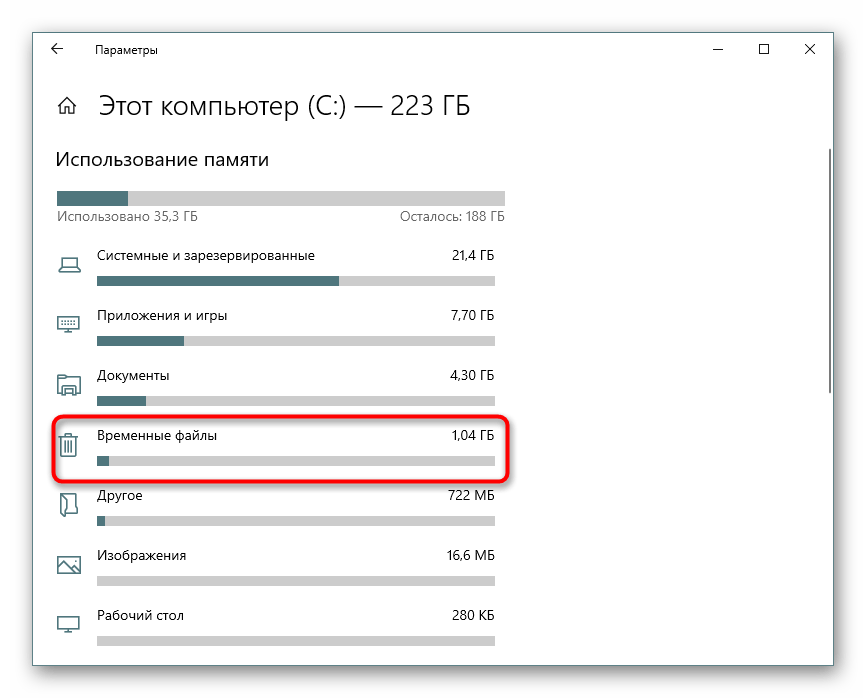
Способ 2: Включение файла подкачки
Также причиной появления ошибки может быть неактивный или неправильно настроенный файл подкачки. Эта функция призвана частично компенсировать нехватку ОЗУ, однако в некоторых случаях её рекомендуют отключать (например, для продления срока службы твердотельного накопителя) и система, которая может обратиться к pagesys, не находит его и выпадает в BSOD. Если же возможность задействована, но сбой появляется, это может быть свидетельством неправильно заданного размера – слишком маленького или же, напротив, большого. В обеих ситуациях следует проверить настройки и установить верные.
Подробнее: Как включить файл подкачки в Windows 10
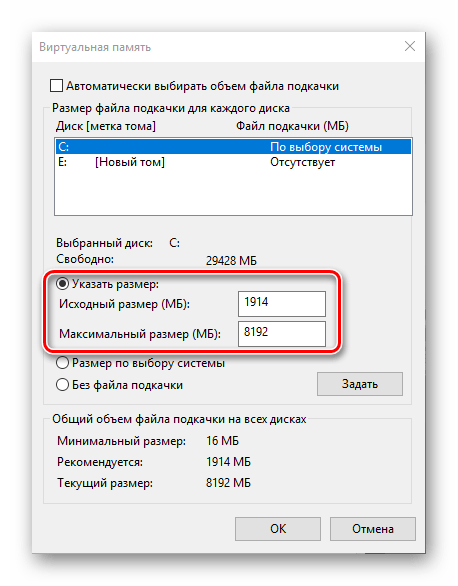
Способ 3: Установка актуальных обновлений
Порой источником проблемы является устаревшая версия «десятки», в которой отсутствуют важные обновления, повышающие стабильность работы системы, убирающие возможные баги и конфликты софта. Если ваша версия ОС ниже 1809, мы рекомендуем как можно быстрее установить апдейт для получения актуальной и поддерживаемой сборки.
Подробнее: Как обновить Windows 10 до актуальной версии
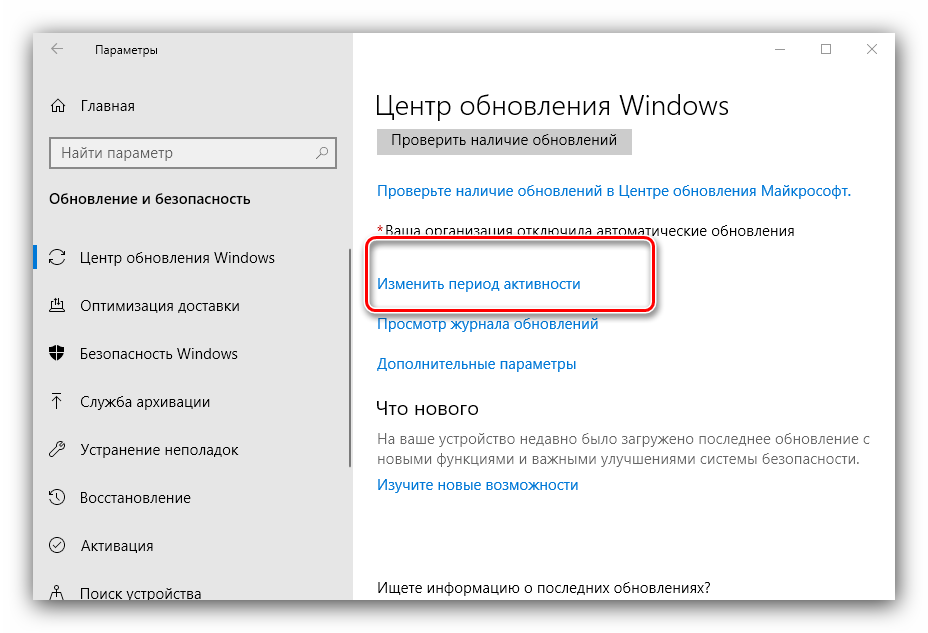
Способ 4: Устранение вирусной угрозы
Рассматриваемая ошибка также может быть симптомом действий вредоносного ПО: например, в систему попал вирус, который маскируется под драйвер для какого-то устройства и влияет на загрузку, что встроенные механизмы защиты воспринимают как сбой и выдают «синий экран». Так что нелишним будет проверить Виндовс на наличие заражения и принять соответствующие меры, если таковое обнаружится.
Подробнее: Борьба с компьютерными вирусами
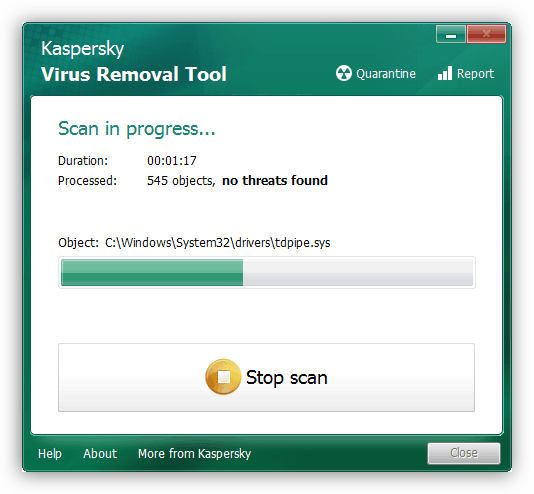
Способ 5: Устранение аппаратных проблем
Последней по порядку, но не по частоте появления причиной можно назвать разнообразные неполадки с аппаратными составляющими компьютера. Алгоритм проверки приводим далее:
- Первым «подозреваемым» является жёсткий диск. Сначала стоит убедиться, что его связи с материнской платой ничто не мешает – проверьте контакт с SATA-кабелем на обеих сторонах, по возможности попробуйте воспользоваться заведомо рабочим, если возникают сомнения в исправности.
Владельцам ноутбуков посоветуем проверить состояние контактов на плате и HDD либо SSD. Нелишним будет продиагностировать работоспособность накопителей на других девайсах, например, посредством специальных приложений.
Подробнее: Как проверить на работоспособность HDD и SSD
- Следующим стоит узнать, что происходит с ОЗУ – ошибка KERNEL_DATA_INPAGE_ERROR часто бывает первым симптомом выхода модулей из строя. Воспользуйтесь приведёнными в статье по ссылке далее методами для диагностики «оперативки» и при обнаружении возможных проблем замените плашки, желательно комплектом однотипных, во избежание несовместимости.
Подробнее: Проверка оперативной памяти в Windows 10
- Порой причиной проблемы может быть банальный перегрев: запускается тяжёлая задача (открыта требовательная видеоигра или рендерится 3D-сцена), и компьютер уходит в BSOD, отображая рассматриваемую ошибку. При подозрении на перегрев рекомендуется разобрать ПК или ноутбук, почистить его от пыли и заменить термопасту/термопрокладки на полагающихся для этого местах. Также стоит озаботиться более качественным охлаждением компьютера, если перегрев не исчез после чистки – как вариант, установив вместо боксового кулера охлаждающую башню или жидкостную систему.
- Не помешает проверить и саму материнскую плату – нередко её поломки могут приводить к рассматриваемому симптому. В первую очередь нужно обратить внимание на состояние микросхем (нет ли на них сколов или прогаров), а также конденсаторов, особенно находящихся рядом с цепью питания процессора или основных чипов. Вздутые конденсаторы можно заменить, если имеются соответствующие навыки, тогда как с другими повреждениями лучше обратиться в сервисный центр.
Подробнее: Как заменить конденсаторы на материнской плате
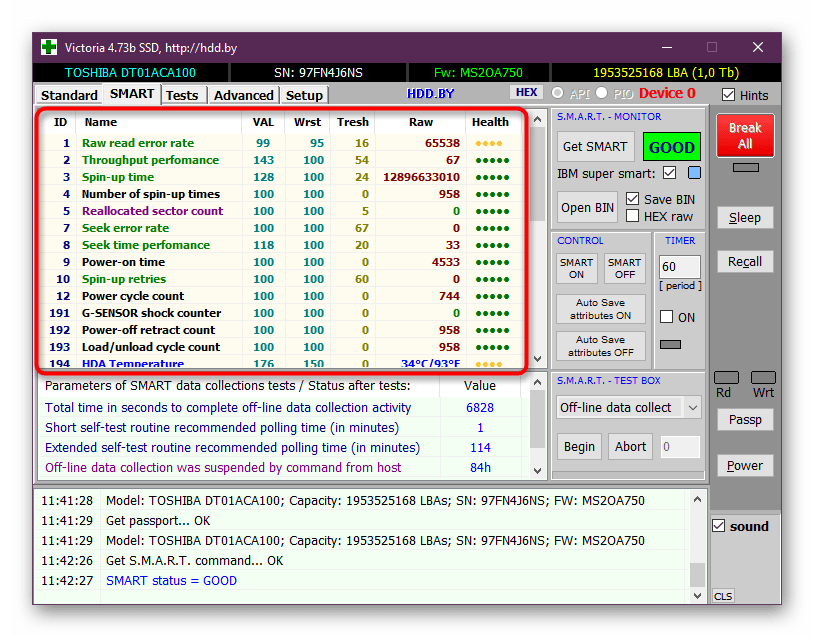
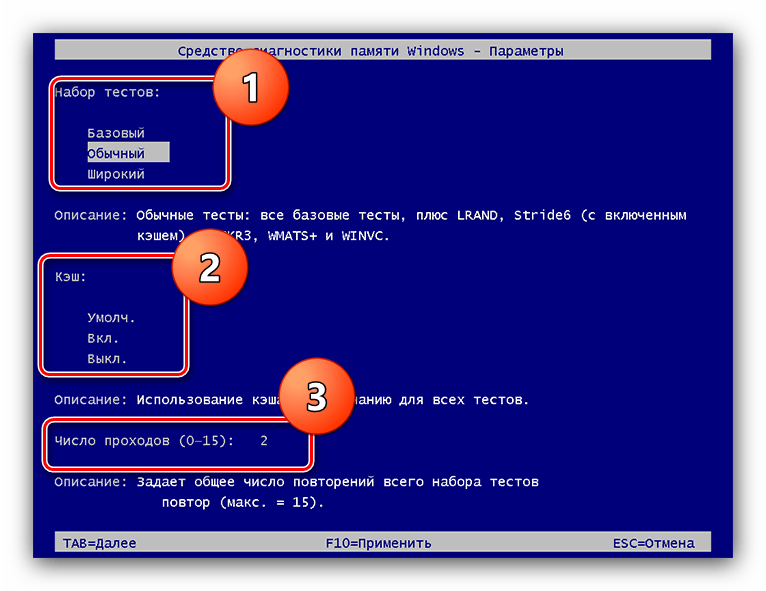
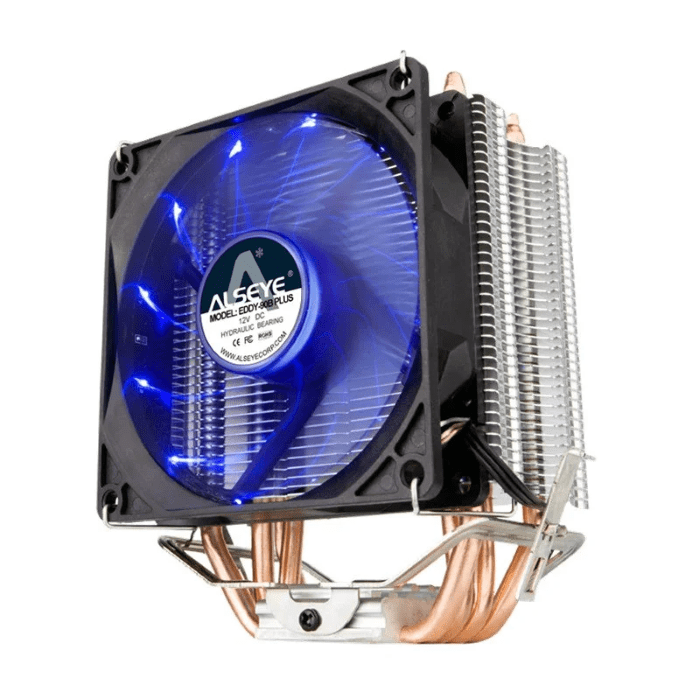
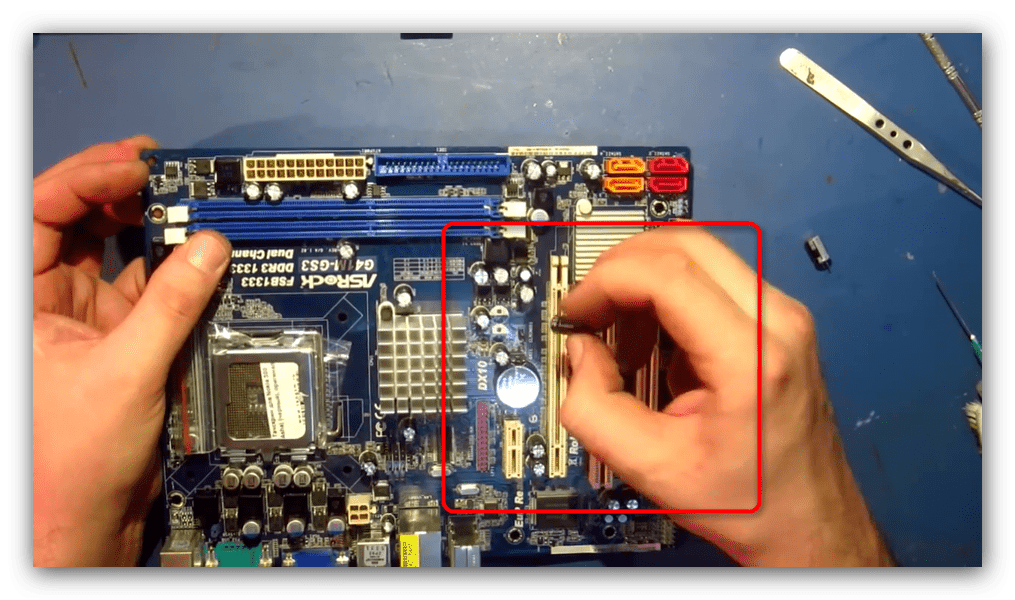
Наша группа в TelegramПолезные советы и помощь
Is your Windows 10 computer crashing with a mysterious “kernel data inpage error” message? Don’t worry, this isn’t goodbye to your computer! This guide explains how to fix this error in simple steps. We’ll check your hard drive, memory, and software to get your system running smoothly again.

Encountering the “Stop Code Kernel Data Inpage Error” on your Windows 10 computer can be alarming, especially when it leads to sudden crashes and disruptions. This error, denoted by the KERNEL_DATA_INPAGE_ERROR code, typically indicates issues with your system’s memory, hard drive, or storage configuration.
What is the Kernel Data Inpage Error?
The kernel is the core of the Windows operating system, responsible for managing hardware and software communication. A “kernel data inpage error” indicates that the system attempted to read data from your hard drive but encountered an issue. This can be caused by various factors, including faulty RAM, corrupted system files, or even a failing hard drive.
Fix Frustrating Kernel Data Inpage Error in Windows 10
The infamous blue screen of death (BSOD) can strike fear into the heart of any Windows user. One particularly common error message is the “stop code kernel data inpage error.” Don’t panic! This blog post will equip you with the knowledge to troubleshoot and fix this error in Windows 10.
The dreaded blue screen of death (BSOD) can strike fear into any Windows user, especially when it displays the cryptic “kernel data inpage error.” But fear not! This error, while frustrating, can often be resolved with a little troubleshooting. Here’s a breakdown of potential fixes to get your system back on track:
1. Ensure Secure Connections:
- Open your computer case and inspect all internal connections. Pay close attention to the cables connecting your hard drive and RAM modules.
- If any cables appear loose, gently but firmly reseat them to ensure a secure connection.
2. Repair Hard Drive Errors with Chkdsk:
- Open Command Prompt as administrator (search for “Command Prompt” in the Start menu, then right-click and select “Run as administrator”).
- Type
chkdsk X: /r(replace X with your actual hard drive letter) and press Enter. - This command scans your hard drive for errors (bad sectors) and attempts to recover readable data. Note: This process might take a while depending on the drive size.
3. Identify Memory Issues with Windows Memory Diagnostic:
- Search for “Windows Memory Diagnostic” in the Start menu.
- Choose “Restart now and check for problems.” This will restart your computer and run a memory scan for potential errors.
4. Update Device Drivers:
- Outdated or incompatible device drivers can cause various system issues, including the kernel data inpage error.
- Visit the manufacturer’s website for your specific hardware (graphics card, motherboard, etc.) and download the latest drivers for your Windows 10 version.
- Install the downloaded drivers following the manufacturer’s instructions.
5. Perform a Clean Boot to Isolate Conflicting Programs:
- A clean boot temporarily disables all startup programs and non-Microsoft services, helping identify if any software conflicts are causing the error [3].
- Instructions for performing a clean boot can be found on the Microsoft support website (https://support.microsoft.com/en-us/topic/how-to-perform-a-clean-boot-in-windows-da2f9573-6eec-00ad-2f8a-a97a1807f3dd).
6. Scan and Repair System Files with SFC:
- Open Command Prompt as administrator (as mentioned earlier).
- Type
sfc /scannowand press Enter. This command scans your system files for corruption and attempts to repair them.
By following these steps systematically, you should be able to diagnose and fix the kernel data inpage error in Windows 10. If the issue persists after trying all software solutions, consider consulting a professional to rule out any potential hardware problems.
Uh oh! “Kernel Data Inpage Error” with win32kfull.sys in Windows 10? Here’s How to Fix It

You might see the specific file “win32kfull.sys” mentioned alongside the kernel data inpage error message in Windows 10. This file is a system file critical for managing your computer’s graphics and user interface.
While the error itself indicates a problem reading data from your hard drive, the “win32kfull.sys” file pinpoints a potential culprit within the graphics subsystem. This doesn’t necessarily mean your graphics card is faulty, but it suggests the error might be related to how Windows interacts with your display driver.
The troubleshooting steps mentioned earlier still apply in this case. By checking your hard drive health, memory for errors, and updating drivers, you can address potential causes related to both data storage and display functionality.
Here’s an additional tip specifically for the “win32kfull.sys” connection:
- Try Updating your Display Driver: Outdated or incompatible display drivers can sometimes cause conflicts with the “win32kfull.sys” file. Head to your graphics card manufacturer’s website (like Nvidia or AMD) and download the latest driver for your specific graphics card model and Windows 10 version. Install the downloaded driver following the manufacturer’s instructions.
Remember, if the error persists after trying all the software solutions, consulting a professional can help diagnose any underlying hardware issues.
Visit Our Post Page: Blog Page
Discover more from Izoate
Subscribe to get the latest posts sent to your email.
Table of contents
- What Is “KERNEL DATA INPAGE ERROR”?
- Causes of “KERNEL DATA INPAGE ERROR” on Windows 10 and 11
- How to Fix “KERNEL DATA INPAGE ERROR” on Windows 10 and 11?
- Solution 1: Check your hard drive
- Solution 2: Verify your RAM health
- Solution 3: Update device drivers
- Solution 4: Enable automatic paging size management
- Solution 5: Run SFC and DISM scans
- Solution 6: Check internal connections
- Solution 7: Perform a clean boot
- Solution 8: Update BIOS
- Solution 9: Scan for malware
- BSOD “KERNEL DATA INPAGE ERROR”: Fixed
- FAQ
In this article, I’ll share my own insights and arm you with proven solutions that worked for me and other users unlucky enough to run into “KERNEL DATA INPAGE ERROR” on Windows 11 or 10. We’ll start by understanding the error and its causes, and then move on to the fixes and ways to prevent it. Without further ado, let’s get on to it.
What Is “KERNEL DATA INPAGE ERROR”?
The stop code “KERNEL DATA INPAGE ERROR” is a BSOD error, signifying that you have issues with your computer’s memory or disk. It usually occurs when Windows detects a problem with data stored in the page file or with virtual or physical memory. The result is well known—at first, you might see some signs of instability, and then your system crashes.
BSOD stands for blue screen of death; it’s a (surprise) blue error screen that displays when your operating system runs into a fatal error it can’t resolve.
BSODs are usually followed by a system crash, the loss of unsaved work, and require a reboot to get your OS back in the working state.
Also read:How to Find Out the Cause of BSODs Using the Event Viewer
Causes of “KERNEL DATA INPAGE ERROR” on Windows 10 and 11
As I’ve already mentioned, the error generally indicates there’s something wrong with your disk or memory. However, if you’re lucky enough, the issue may be as simple as a loosely connected cable. So, let’s dig a bit deeper and see the possible triggers for the problem:
- Problems with the hard drive, such as bad sectors (spoiler: that was the case with my system), disk errors, or a failing drive;
- Faulty or failing Random Access Memory (RAM) modules;
- Outdated or incompatible device drivers;
- Loose cable connections and those between hardware components, such as the hard drive or RAM modules, and the motherboard;
- Conflicts between apps, software programs, or system processes;
- An outdated or improperly configured BIOS (basic input/output system);
- Malicious software or malware infections corrupting system files or interfering with system processes.
Now that we’re armed with knowledge about “ KERNEL DATA INPAGE ERROR ” and its causes, it’s time to roll up our sleeves and get it dealt with.
Also read: How to Check Causes of Windows BSODs
How to Fix “KERNEL DATA INPAGE ERROR” on Windows 10 and 11?
As someone who has faced this error, I share your pain. Seeing a BSOD pop out of the blue with a critical error is something none of us want to experience. But hey, cheer up! That’s why I’m here—to help you get through this. Below is the list of fixes, one of which, hopefully, will save your day.
Solution 1: Check your hard drive
Let’s start with checking your hard drive, as it’s one of the most common reasons for “KERNEL DATA INPAGE ERROR” on Windows 11 and 10.
First, run the Windows built-in CHKDSK utility to check for disk errors and bad sectors. Here’s how:
- Click on the search icon on the taskbar and type
cmd. - Right-click the first result and select Run as administrator.
- In the Command Prompt interface, type
chkdsk /f /r /xand hitEnter.
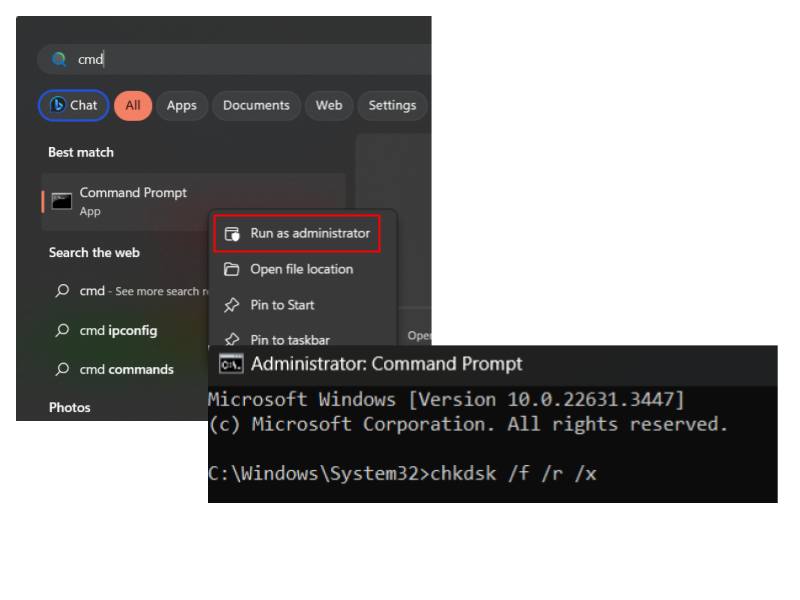
CHKDSK will now run a thorough disk check and repair process. This method worked for me, fixing bad sectors on my drive, and I haven’t seen the error since.
However, if it didn’t work for you, don’t despair. This was only the first step on the path, so just keep walking.
Solution 2: Verify your RAM health
The second thing I suggest you try is to check if your RAM is okay, because if it’s not, it can trigger other BSOD errors, such as “ KERNEL SECURITY CHECK FAILURE .” To check it, you can run the Windows Memory Diagnostic tool :
- Type
Windows Memory Diagnosticin the Start menu search bar. - Click on the first result.
- Select Restart now and check for problems.
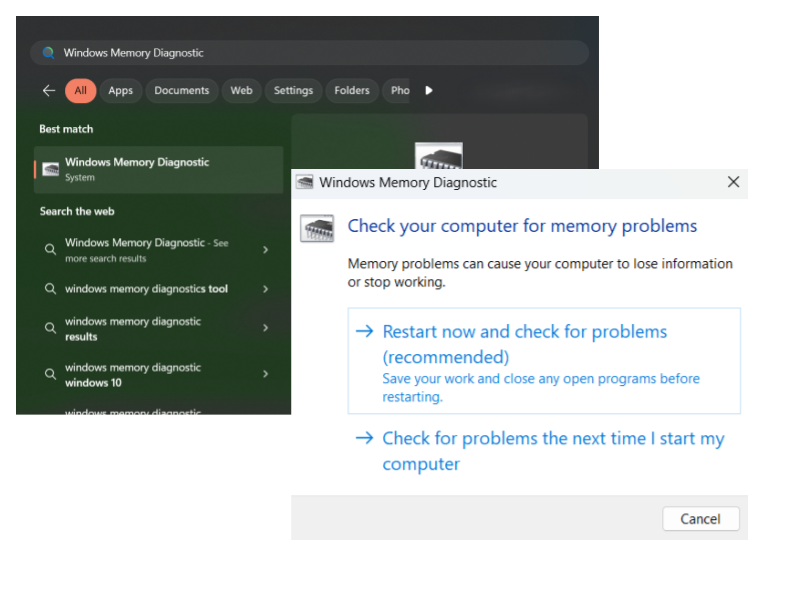
The tool will scan for and attempt to fix any RAM issues your computer might have. Alternatively, you can use third-party software like Memtest86 to perform a more comprehensive memory test.
Solution 3: Update device drivers
Another effective method to get rid of the error in discussion and some others, like the “ntoskrnl.exe” BSOD , is to make sure all your device drivers are up to date. You can update them manually via Device Manager and device manufacturers’ websites or use specialized tools to automate the process. Here’s how to update your drivers via Device Manager:
- Right-click Start and select Device Manager.
- Right-click on each device and select Update driver.
- Next, select Search automatically for drivers.
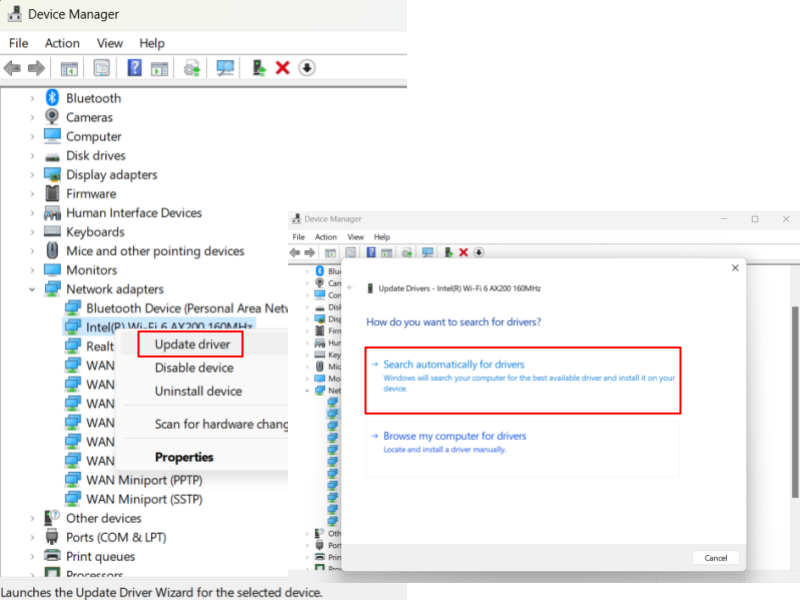
However, there is a way to make it easier: you can use Auslogics Driver Updater . The tool automatically scans your system for outdated and missing drivers, finds the latest and manufacturer-recommended ones, and allows you to update them with a click of a button.
Download Auslogics Driver Updater
Prevent hardware errors and ensure problem-free device operation with this advanced tool that detects outdated drivers and safely gets them updated.
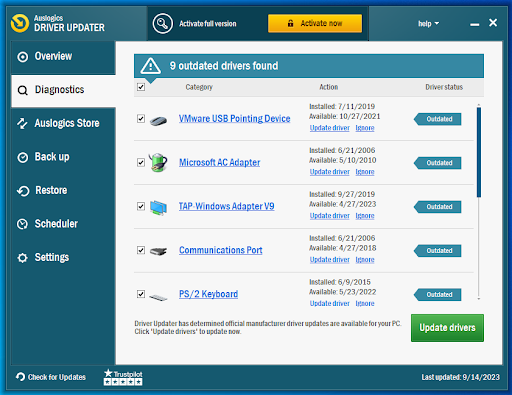
Update drivers automatically with the Auslogics Driver Updater
Further reading: How to Check if My Drivers Are Up to Date on Windows 10 PC?
Solution 4: Enable automatic paging size management
Enabling this option often helps in resolving “ KERNEL DATA INPAGE ERROR” on Windows 10 and 11. However, it can lead to a slight decrease in your computer’s performance . Here’s how to enable it:
- Open File Explorer, right-click This PC on the left-hand side, and select Properties.
- Click on Advanced system settings next to Related links.
- In the Advanced tab, click Settings under Performance.
- Click Advanced.
- Under Virtual Memory, click on Change.
- Enable the Automatically manage paging file size for all drives option.
- Click OK to save changes, close System Properties, and reboot your computer.
If the error keeps popping up, head to the next solution.
Solution 5: Run SFC and DISM scans
Sometimes, “KERNEL DATA INPAGE ERROR” can be triggered by system file corruption. If this is your case, running System File Checker (SFC) and Deployment Image Servicing and Management (DISM) scans can help fix it. Follow these steps:
- Open the Command Prompt as an administrator.
- Type
sfc /scannowand pressEnter. This command will run the System File Checker. - Wait for the scan to complete, then type
DISM.exe /Online /Cleanup-image /Restorehealthand pressEnterto run the DISM scan.
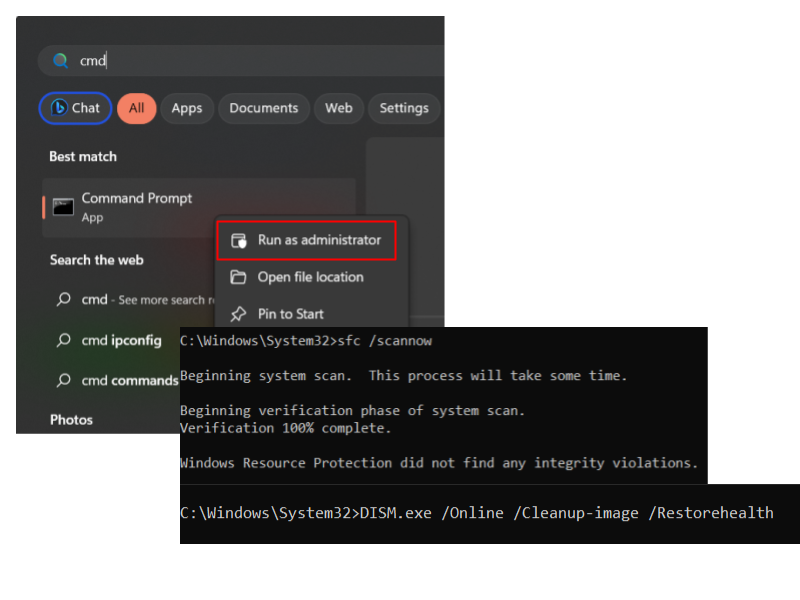
- Once both scans are finished, restart your computer and check if the error keeps showing up.
This method is effective not only for the BSOD we’re trying to deal with in this article but for most other blue screen errors, such as “ HAL_INITIALIZATION_FAILED ,” as well.
Solution 6: Check internal connections
If you’re still experiencing the error, the next step on this road is to ensure that all cable connections, including those between the hard drive or RAM modules and the motherboard, are secure. For that, you need to open the computer case and inspect each connection carefully. Make sure the cables are not frayed or damaged. If not, reseat any loose cables and verify they are properly connected.
Solution 7: Perform a clean boot
Performing a clean boot helps isolate software conflicts, allowing you to identify the exact app or service that’s causing “ KERNEL DATA INPAGE ERROR .”
- Press
Win + R, typemsconfig, and hitEnter. - Go to the Services tab and check the box at the bottom of the window next to Hide all Microsoft services.
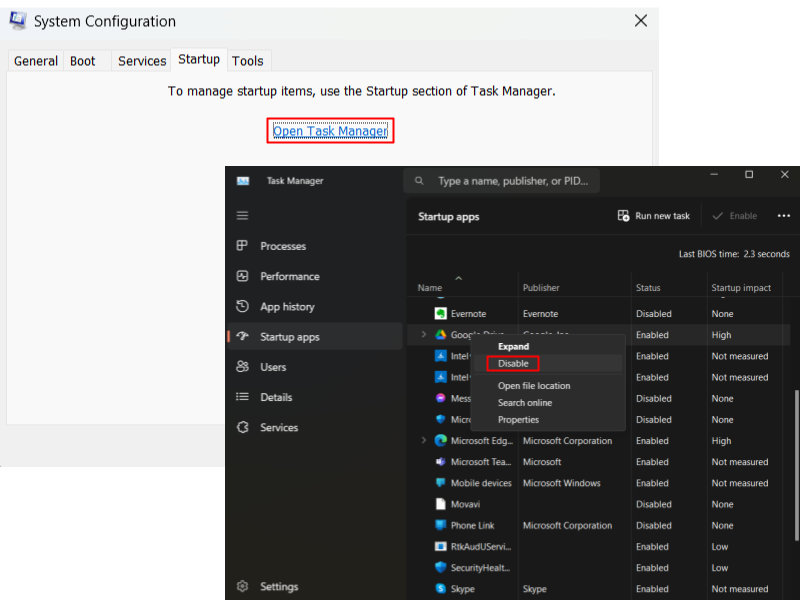
- Restart your computer to apply the changes.
- After restarting, check if the error still appears. If it doesn’t, then it’s likely caused by a software conflict.
- To identify the conflicting software, re-enable services and startup items one by one, restarting your computer after each change.
- When the error reappears after re-enabling a specific service or startup item, congratulations—you’ve found the conflicting software. Now you need to update, reinstall, or uninstall the software triggering the error to fix it.
Solution 8: Update BIOS
If you’re still facing the error, visit the manufacturer’s website to download the latest BIOS update for your motherboard model and follow the manufacturer’s instructions to update the BIOS .
Solution 9: Scan for malware
If nothing has helped so far, chances are that a virus or other malware could infect your computer and trigger “KERNEL DATA INPAGE ERROR” on your Windows 11 or 10 computer. Run a full system scan to check for and remove the infection from the system. Here’s how:
- Go to Settings > Privacy & security (Update & security in Windows 10) > Windows Security.
- Go to the Virus & threat protection tab on the left-hand side and select Scan options.
- Select Full scan and click Scan now.
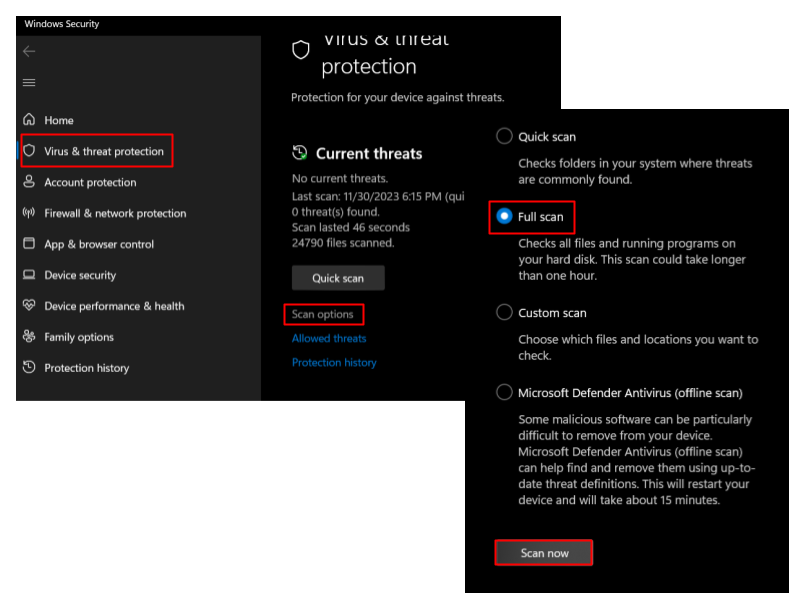
PRO TIP
To add another layer of protection for your computer, consider using Auslogics Anti-Malware, a reliable tool that detects and removes malware and is designed to work alongside your primary antivirus solution.
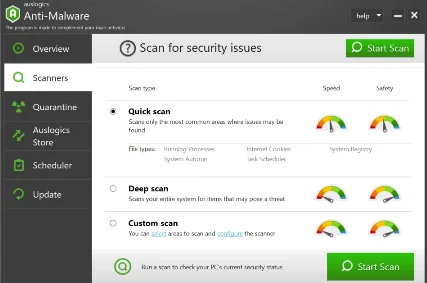
Scan your PC for malicious items with Auslogics Anti-Malware
BSOD “KERNEL DATA INPAGE ERROR”: Fixed
And here we are. I hope that one of the solutions above worked for you and fixed “KERNEL DATA INPAGE ERROR,” allowing you to breathe out and get your computer back in top shape.
To prevent such BSOD errors in the future, regularly update your system, scan it for viruses, and keep an eye on disk health.
Got any additional tips to share? Head straight to the comments below.
FAQ
How do I know if my memory is faulty?
Decreased system performance, frequent crashes or freezes, and unexpected reboots are all signs indicating that your RAM may be faulty.
How do I check my RAM for errors?
To check for RAM errors, you can use a built-in Windows tool like Windows Memory Diagnostic or third-party tools like Memtest86. These tools will perform tests on your RAM to identify any errors.
How to check if my hard drive is the cause of “KERNEL DATA INPAGE ERROR”?
You can check if your hard drive is causing “ KERNEL DATA INPAGE ERROR ” by running the CHKDSK utility. It will scan your hard drive for errors and fix any file system issues that may be triggering the error.

